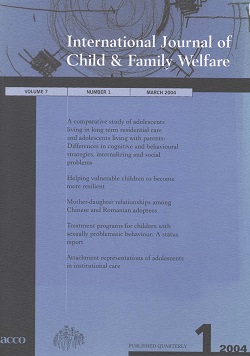A comparative study of adolescents living in long term residential care and adolescents living with parents: Differences in cognitive and behavioural strategies, internalizing and social problems
Keywords:
cognitive and behavioural strategies, internalizing problems, social problems, residential careAbstract
The present study aims to explore the extent to which cognitive and behavioural strategies and internalizing and social problems of orphaned and abandoned adolescents placed to institutions for long term residential care, differ from those of adolescents living with parents. Measures of anxiety-depression, withdrawal, and social problems, and measures of cognitive and behavioural strategies of 127 Lithuanian adolescents living in long term residential care were compared with those of 204 adolescents living with their parents. Higher levels of anxiety/depression, withdrawal and social problems were found among adolescents living in long term residential care. Adolescents living in long term residential care seemed to apply the most dysfunctional achievement strategies and did not use self-enhancing attributions. They used more task-irrelevant behaviour, were less seeking social support, used less reflective thinking, and were less mastery-orientated in achievement context than adolescents living with parents. Next, in an affiliative context adolescents living in long term residential care were much more pessimistic than the adolescents, living with parents. Separation or loss of parents, followed by institutionalization is likely to have a negative impact on the cognitive and behavioural strategies adolescents use in various situations.

